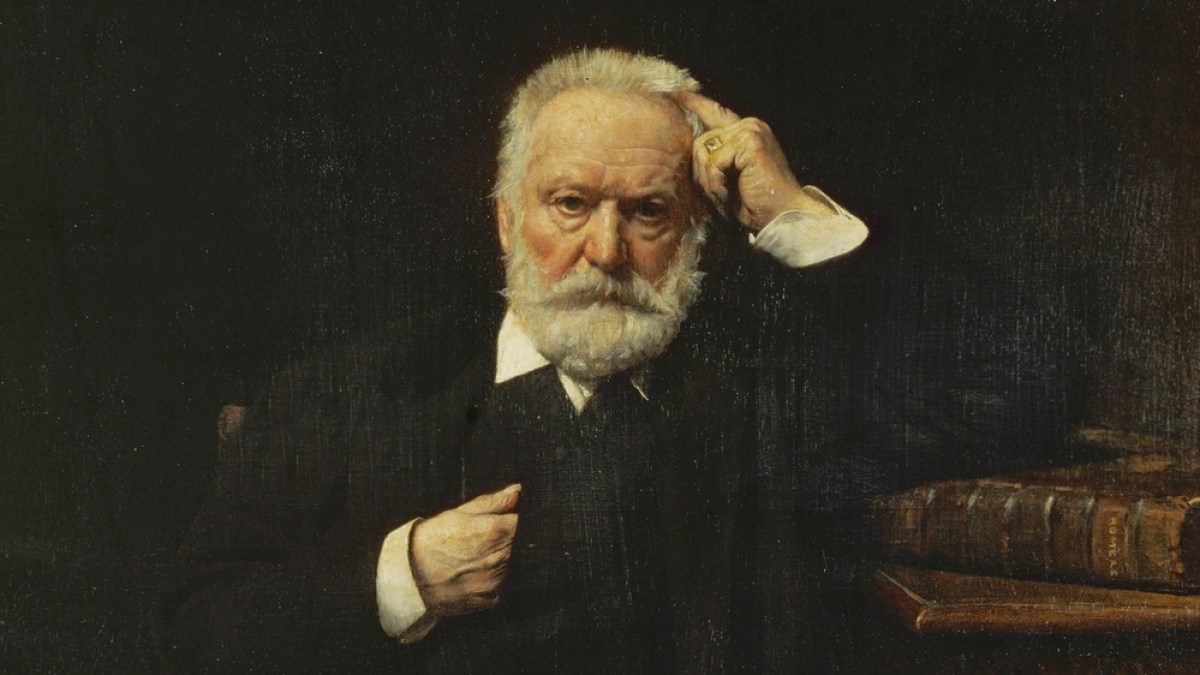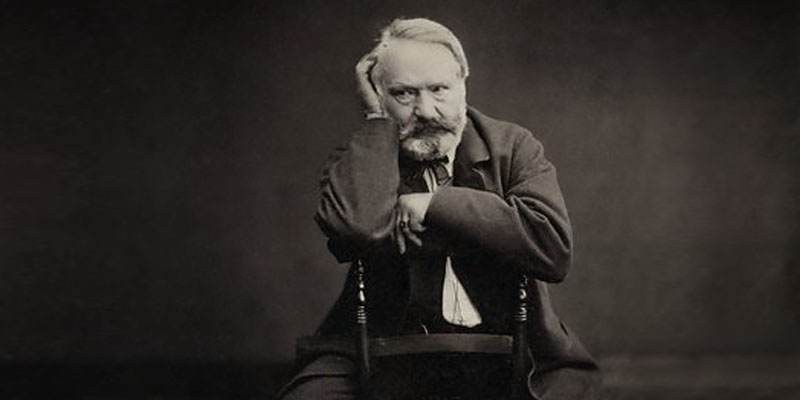The Enduring Legacy of Victor Hugo: A Literary Journey Through His Life and Works
Introduction::max_bytes(150000):strip_icc()/GettyImages-3331250-283e68ca7523486e97596b0b8622bcad.jpg)
Victor Hugo, a towering figure in French literature, left an indelible mark on the world of letters. Born in 1802 in Besançon, France, Hugo's literary career spanned several decades, during which he produced an extraordinary body of work. His contributions to literature, encompassing novels, poetry, essays, and plays, continue to resonate with readers worldwide. This essay explores the life, works, and enduring legacy of Victor Hugo, shedding light on his profound impact on literature and society.
Early Life and Education:
Victor Hugo was born into a family of modest means, his father being a general in Napoleon's army. His upbringing was marked by a deep appreciation for literature and the arts, with his mother fostering his early interest in poetry and storytelling. As a young boy, Hugo showed remarkable talent, winning literary prizes and garnering acclaim for his poetic prowess.
Hugo's education was diverse, reflecting his broad intellectual curiosity. He studied literature, history, and philosophy, immersing himself in the works of classical and contemporary writers. His voracious appetite for knowledge would later manifest in his writing, as he drew upon a wide range of influences to create his distinctive literary style.
Literary Career and Major Works:
Hugo's literary career began in earnest with the publication of his first collection of poems, "Odes et poésies diverses," in 1822. These early works showcased his lyrical skill and romantic sensibility, establishing him as a promising young poet. However, it was his novel "Hernani" (1830) that catapulted him to fame and ignited a literary revolution.
"Hernani," with its bold exploration of love, honor, and political intrigue, challenged the conventions of French drama and sparked heated debates among critics and audiences alike. Hugo's innovative use of language and dramatic techniques heralded a new era in literature, earning him both admiration and controversy.
In the years that followed, Hugo continued to push the boundaries of literary expression, producing a series of masterpieces that cemented his reputation as one of France's preeminent writers. Among his most famous works is "The Hunchback of Notre-Dame" (1831), a sweeping historical novel set against the backdrop of medieval Paris. This timeless tale of love, betrayal, and redemption captivated readers with its vivid characters and evocative imagery, solidifying Hugo's status as a literary giant.
Yet it was "Les Misérables" (1862) that would ultimately secure Hugo's place in the pantheon of literary greats. This epic novel, spanning decades of French history, chronicled the lives of its diverse cast of characters with compassion and insight. From the noble Jean Valjean to the streetwise Cosette, Hugo's vividly drawn characters captured the struggles and triumphs of the human spirit, resonating with readers across generations.
Political Activism and Social Commentary:
Beyond his literary achievements, Hugo was also a passionate advocate for social justice and political reform. Throughout his life, he used his platform as a writer to champion causes such as abolitionism, democracy, and the rights of the marginalized. His impassioned speeches and essays, including "Napoleon the Little" (1852) and "The History of a Crime" (1877), exposed the abuses of power and tyranny, earning him both admirers and adversaries.
Hugo's commitment to social change was reflected in his writing, which often tackled pressing issues of his time, such as poverty, inequality, and the plight of the disenfranchised. In "Les Misérables," for instance, he drew attention to the plight of the poor and the injustices of the legal system, sparking widespread debate and prompting calls for reform.
Legacy and Influence:
Victor Hugo's legacy looms large in the annals of literature, his influence extending far beyond the borders of his native France. His works have been translated into numerous languages and adapted into countless films, plays, and musicals, ensuring their enduring popularity and relevance.
Moreover, Hugo's enduring appeal lies not only in the timeless themes and universal truths found in his writing but also in his innovative approach to storytelling and his unwavering commitment to social justice. His ability to blend poetic lyricism with powerful social commentary continues to inspire writers and readers alike, reminding us of the transformative power of literature to illuminate the human condition. In conclusion, Victor Hugo's contributions to literature and society are as profound as they are enduring. From his groundbreaking novels to his impassioned advocacy for social change, he left an indelible mark on the world of letters and the hearts of countless readers. As we celebrate his life and works, we are reminded of the enduring power of storytelling to transcend boundaries, provoke thought, and ignite the flames of imagination.
In conclusion, Victor Hugo's contributions to literature and society are as profound as they are enduring. From his groundbreaking novels to his impassioned advocacy for social change, he left an indelible mark on the world of letters and the hearts of countless readers. As we celebrate his life and works, we are reminded of the enduring power of storytelling to transcend boundaries, provoke thought, and ignite the flames of imagination.
Victor Hugo may have passed from this world, but his words live on, a testament to the enduring legacy of one of history's greatest literary titans.
Hugo's influence extended not only to literature but also to other artistic and intellectual spheres. His advocacy for social justice and human rights inspired generations of activists, artists, and thinkers to use their platforms to effect positive change in society. Hugo's legacy resonates in the works of subsequent writers who have drawn inspiration from his themes, characters, and narrative techniques. Furthermore, Hugo's impact on the cultural landscape can be seen in the numerous adaptations, homages, and references to his works in various media. Countless filmmakers, playwrights, and musicians have been drawn to Hugo's stories, reimagining them for new audiences and exploring their enduring relevance in contemporary contexts.
Furthermore, Hugo's impact on the cultural landscape can be seen in the numerous adaptations, homages, and references to his works in various media. Countless filmmakers, playwrights, and musicians have been drawn to Hugo's stories, reimagining them for new audiences and exploring their enduring relevance in contemporary contexts.
In addition to his literary achievements, Hugo's personal life and struggles have also contributed to his mythic status. His tumultuous relationship with his family, his political exile, and his passionate love affairs have been the subject of much speculation and fascination, adding layers of complexity to his public persona.
Despite the passage of time, Hugo's relevance remains undiminished, his words continuing to resonate with readers around the world. His exploration of themes such as justice, redemption, and the human spirit speaks to the universal truths of the human experience, offering solace, inspiration, and hope to generations of readers. As we reflect on Victor Hugo's life and works, we are reminded of the enduring power of literature to transcend time and space, to connect us to the shared experiences of humanity, and to remind us of our capacity for empathy, understanding, and change. In an ever-changing world, Hugo's words remain a beacon of light, guiding us through the darkness and inspiring us to strive for a better tomorrow.
As we reflect on Victor Hugo's life and works, we are reminded of the enduring power of literature to transcend time and space, to connect us to the shared experiences of humanity, and to remind us of our capacity for empathy, understanding, and change. In an ever-changing world, Hugo's words remain a beacon of light, guiding us through the darkness and inspiring us to strive for a better tomorrow.
In conclusion, Victor Hugo's legacy is one of unparalleled significance and enduring relevance. His contributions to literature, social activism, and the arts have left an indelible mark on the world, shaping the course of history and inspiring countless individuals to pursue their dreams and fight for what they believe in. As we continue to grapple with the challenges of our time, Hugo's words serve as a reminder of the power of creativity, compassion, and courage to transform the world and touch the hearts of all who encounter them.







































